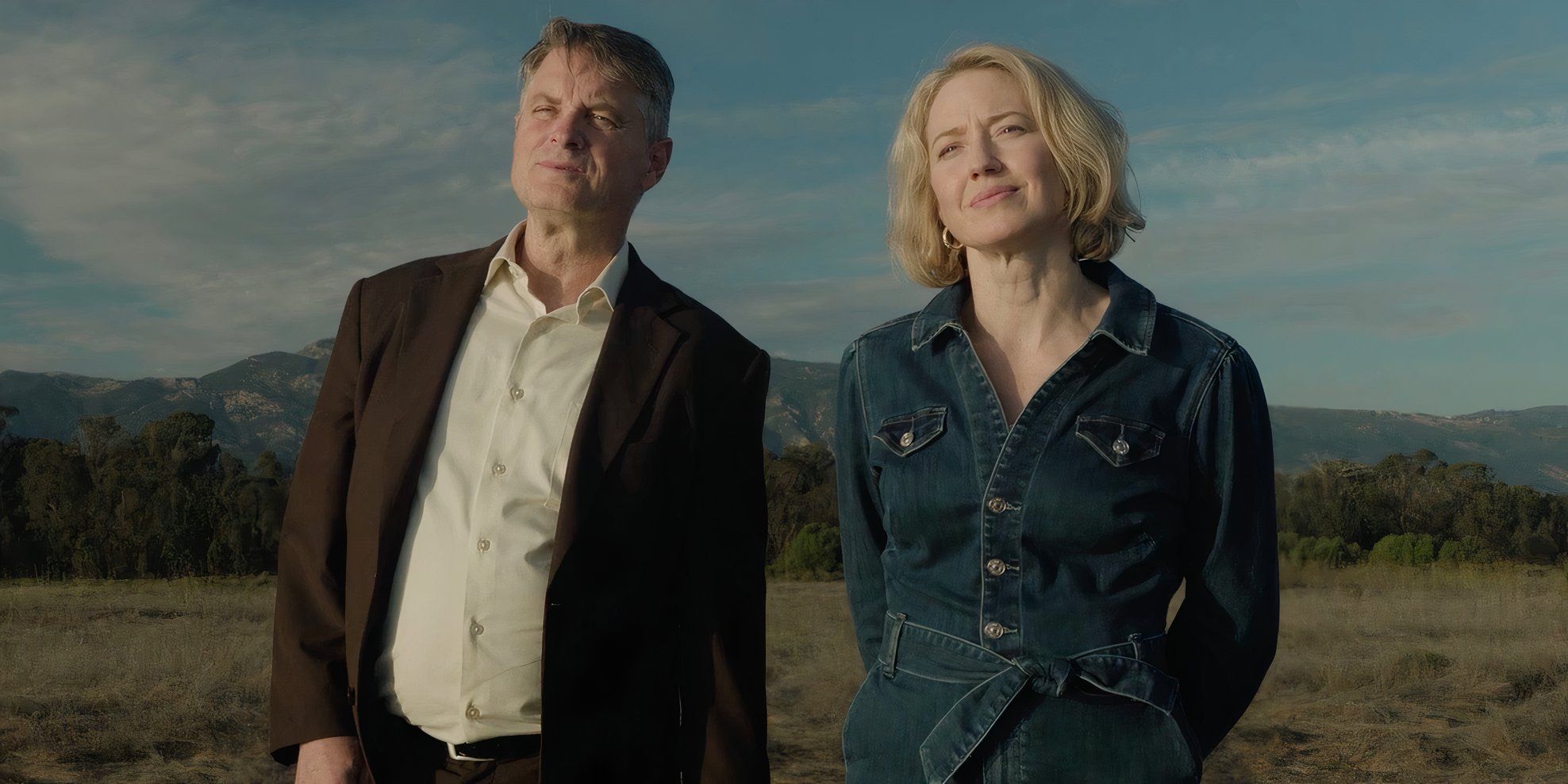The Return
is more than just a cinematic reunion for Ralph Fiennes and Juliette Binoche; it is a return to basics from director Uberto Pasolini, who shares a more grounded interpretation of Homer’s The Odyssey. Written by Pasolini, John Collee, and Edward Bond, Pasolini filmed in Italy and Greece’s Corfu and Peloponnese regions, bringing little artificiality to these locations with VFX or elaborate sets.
The locations remain largely untouched, making the story of Odysseus grounded in reality. At times, it feels like Pasolini, Collee, and Bond aren’t adapting a literary epic but a story from a history textbook. Lacking Hollywood’s usual embellishments and adornments, The Return is an adaptation that seeks to center the humanity and sincerity of Odysseus’ journey and Penelope’s resolve, returning to the basic themes of the poem.
Odysseus washes up on the shores of his island kingdom, Ithaca, after leaving to fight in the Trojan War. After 10 years of battle and 10 years lost, Odysseus returns unrecognizable to those who watched their warrior king go off for glory. Now, his wife is hounded by an incredulous suitor who can’t take no for an answer, and his grown son is restless but in danger as the young heir. Odysseus must reckon with his past at war and his treacherous journey home to save his family and reclaim what was lost.
The Return Is Elevated By Stunning Performances From Ralph Fiennes & Juliette Binoche
They Add Nuance & So Much Depth To Their Characters
The film will surely get a lot of attention because it stars Fiennes and Binoche, and the excitement is warranted because they’re terrific. As Penelope, Binoche is as regal, composed, and beautiful as ever, but what comes across so beautifully is her enduring passion and love for her husband. Even Marwan Kenzari’s handsomeness and charisma can’t get her to stray, and that is why Penelope is stronger than any man who fought in the Trojan War.
Then we have our hero, the despondent Odysseus, racked with guilt and trauma, stumbling about with nothing but his whisper of hope and a loin cloth. To say that Fiennes is perfect for the role is an understatement. The key to this successful casting is Fiennes’s ability to communicate with his eyes. Odysseus is a man of few words, but his mind is weighed down by immense feelings and a million thoughts that revolve around his actions and decisions during the Trojan War.
Twenty years he has been away — he’s lost time with his wife, son, and compatriots to endure pain and suffering for a victory he can’t entirely accept. So much and more is conveyed through Fiennes’s steely gaze, and when he does speak, his words ring like a bell, ensuring everyone’s attention is on him.
The Return Works Because Its Scale Is Far More Intimate
The Film Isn’t Concerned With Odysseus Fighting Monsters
For a film adapted from such a well-known epic, the size and scope of The Return feels small and intimate. Pasolini takes the grandeur of the literary beast and distills its more meaningful themes in a way that makes the story more digestible to those who may not be familiar with the story. This is a winning approach as it allows the performances to shine and the sincerity of Penelope and Odysseus’ love to ring true.
I did wonder at times what the project would have been if Universal or Warner Bros. had gotten hold of it. What would an epic like this look like in 2024 with the backing of $100+ million? However, the lush scenery and costume details dissipate much of my curiosity. Pasolini practices patience and tenderness with this adaptation and it’s a means of genuinely engaging with the heart of Odysseus’ story.
So much and more is conveyed through Fiennes steely gaze.
Will contemporary audiences respond overwhelmingly? I don’t think so. I’m simply wondering what The Return would look like with a massive budget as a result of what audiences might expect these days from theatrical releases. The modern theatrical experience comes with the expectation that there needs to be more. For an adaptation of The Odyssey, that expectation might mean seeing the mythological monsters Odysseus encounters in the poem, such as a cyclops, the six-headed serpentine, and the sirens.
The only monsters Odysseus encounters in Pasolini’s adaptation are fellow humans. Anyone with a sliver of familiarity with The Odyssey will immediately see that this adaptation is considerably stripped down, especially considering the size of the book. The Return is a somber affair, opting for a meditative storytelling approach over a flamboyant showing of VFX. This is not on the level of a comic book movie; it is not even remotely close to the likes of Clash of the Titans, Immortals or Troy.
Related
Lake George Review: Shea Whigham & Carrie Coon Are The Perfect Pair In This Unconventional Crime Thriller
What keeps it going is its oddball sense of humor and the winning pair of Shea Whigham and Carrie Coon, who are delightful and perfect together.
The Return may not drive audiences to theaters, but it should. Art should not be bound to how much money it does or doesn’t make. Sure, we won’t see Fiennes battling giant cannibals, but we can see in his eyes that he has been through it. We get two influential actors reuniting on the big screen in a film that is comparable to their acting gifts. Ultimately, The Return benefits from not being another Clash of the Titans because simplicity has a tremendous impact.
The Return is now playing in theaters. The film is 116 minutes long and rated R for violence, some sexual content, graphic nudity and language.

The Return
- A simple adaptation that opts for on-location shooting and beautiful scenery over VFX
- Fiennes & Binoche are terrific as separated lovers longing for each other
- A humane, stripped down adaptation of a famous epic


